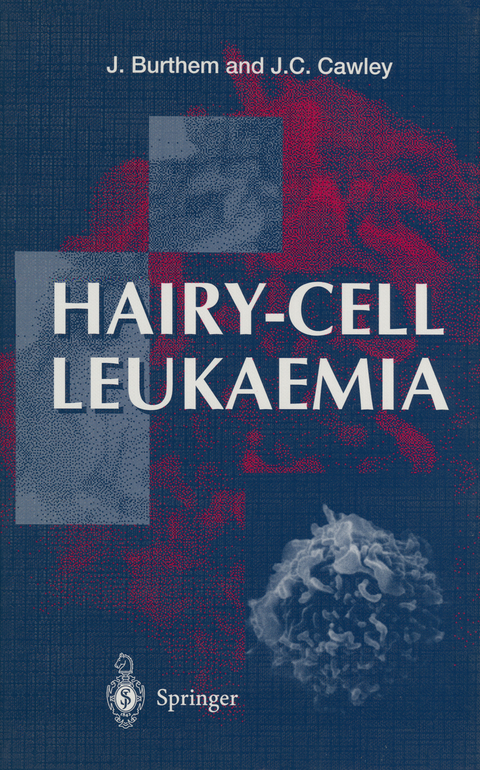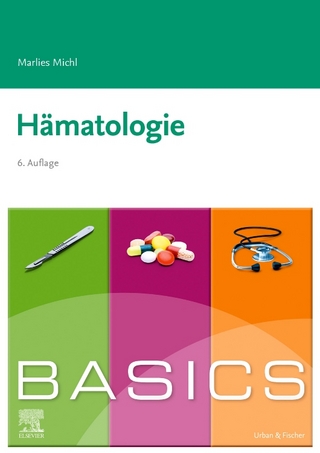
Hairy-cell Leukaemia
Springer London Ltd (Verlag)
978-1-4471-1256-3 (ISBN)
Hairy cell Leukaemia (HCL) has always attracted an interest out of all proportion to its frequency and continues to do so. There are two reasons for this. The first is that the disease is unusually responsive to therapy and second is that it has provided a number of important insights into B-cell biology. This monograph is a comprehensive account of hairy cell leukaemia and aims to provide a more detailed account than is available in the existing literature. The work is timely because a consensus has now emerged concerning accurate differential diagnosis a nd curative treatment. These aspects therefore form the focus of the book and are considered in detail. The basic advances in the laboratory that encourage the belief that elucidation of the underlying oncogenic event in the disease may be within reach. The background to this belief is extensively renewed. As a result the monograph will be of interest and practical value to both clinicians and researchers in this and related fields.
1 Introduction and Historical Aspects.- 2 Clinical Aspects.- 2.1 Clinical features.- 2.2 Laboratory features.- 2.3 Prognosis: staging systems.- 3 Pathology.- 3.1 Bone marrow.- 3.2 Spleen.- 3.3 Liver.- 3.4 Lymph nodes.- 3.5 Other blood cells.- 3.6 Viruses and HCL.- 4 Diagnosis and Hairy-like Disorders.- 4.1 The diagnosis of typical HCL.- 4.2 Diagnosis when few abnormal cells are present.- 4.3 Diagnosis of HCL in the presence of atypical clinical or pathological features.- 4.4 Variant forms of HCL and closely related conditions.- 4.5 Atypical and rare presentations.- 5 Treatment: Mechanisms.- 5.1 Mechanism of action of splenectomy.- 5.2 The mechanism of action of ?IFN.- 5.3 Mechanism of action of the purine analogue drugs.- 6 Treatment: Practical Considerations.- 6.1 When should treatment be commenced?.- 6.2 Splenectomy.- 6.3 Interferon.- 6.4 Purine analogue drugs: DCF, CDA and fludarabine.- 6.5 The use of colony-stimulating factors in HCL.- 6.6 Overview of therapeutic options.- 6.7 Treatment after failure of primary treatment option.- 6.8 Other treatment options.- 7 The Hairy Cell.- 7.1 Cytology.- 7.2 Cytochemistry.- 7.3 Cytogenetics.- 7.4 Ultrastructure.- 7.5 Nature of the malignant cell.- 7.6 Membrane, cytoskeletal organisation and signalling.- 7.7 Response to cytokines.- 7.8 Adhesion and tissue localisation.- 7.9 Cell survival and cell death.- Appendices.- Appendix A: Tartrate-resistant acid phosphatase (TRAP).- Appendix B: CD-antigen expression by HCs.- References.
"This excellent little book brings together a lot of the knowledge obtained in the last 40 years and I enjoyed reading it...I have no hesitation in recommending this book. It is well written, authoritative and practical. All haematologists should have access to it." Cancer Forum
| Zusatzinfo | IX, 111 p. |
|---|---|
| Verlagsort | England |
| Sprache | englisch |
| Maße | 155 x 235 mm |
| Themenwelt | Medizinische Fachgebiete ► Innere Medizin ► Hämatologie |
| Medizin / Pharmazie ► Medizinische Fachgebiete ► Onkologie | |
| Studium ► 2. Studienabschnitt (Klinik) ► Pathologie | |
| Schlagworte | Hairy cell leukaemia • Leukaemia |
| ISBN-10 | 1-4471-1256-3 / 1447112563 |
| ISBN-13 | 978-1-4471-1256-3 / 9781447112563 |
| Zustand | Neuware |
| Informationen gemäß Produktsicherheitsverordnung (GPSR) | |
| Haben Sie eine Frage zum Produkt? |
aus dem Bereich


